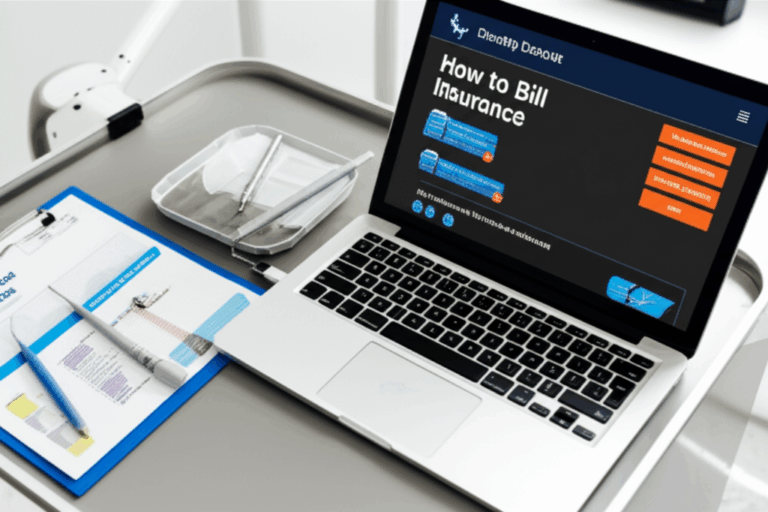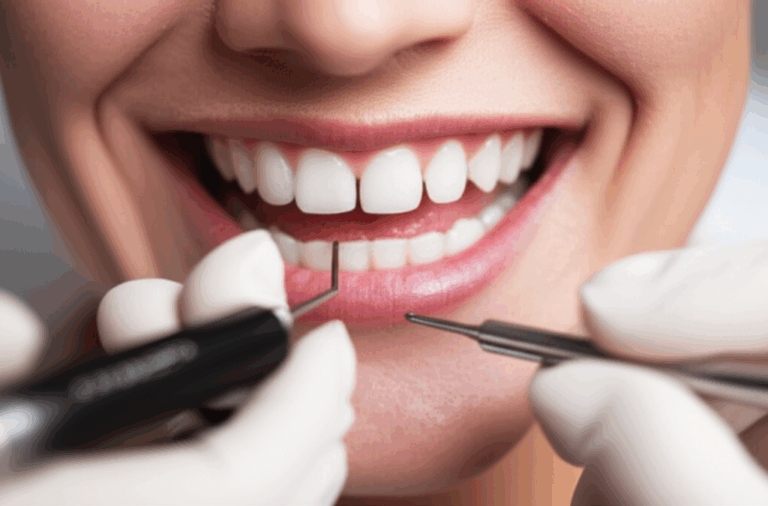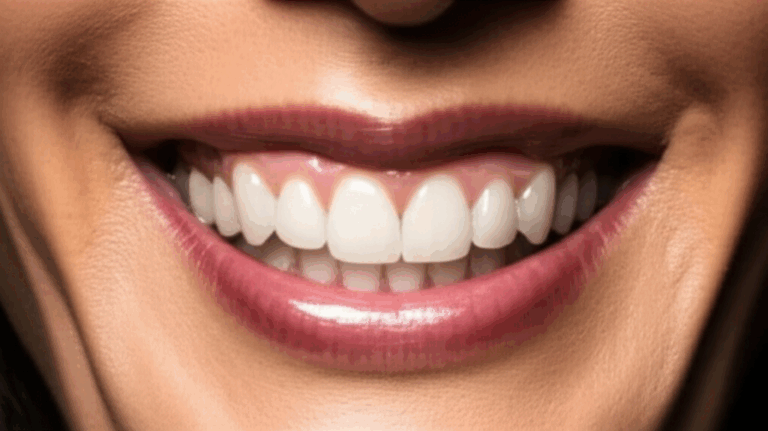
Do You Need a Referral to See a Dentist? Your Simple, Caring Guide
That Big Question: Can You Really Just Call a Dentist?
Maybe you woke up with a toothache that won’t go away. Or maybe you finally want that healthy, happy smile, but you feel lost with all the insurance words and steps. So you’re here now, asking—do you need a referral to see a dentist, or can you just make your own appointment?
You’re not the only one confused. Whether it’s your first time at the dentist or you’ve been a few times, lots of people get tripped up here. All those words like “in-network providers,” “HMOs,” and “specialist referrals” can make anyone scratch their head. Don’t worry—at the end of this guide, you’ll have clear, simple answers. You’ll know exactly what you need to do next.
In This Article
- Do You Need a Referral? The Straightforward Answer
- When You Can See a General Dentist Without a Referral
- Meet Dental Specialists & When Referrals Pop Up
- Dental Insurance 101: How Your Plan Sets the Rules
- When Is a Referral Rarely or Never Needed?
- How to Get a Referral (If You Need One)
- What Happens If You Skip a Needed Referral?
- Easy Tips for the Dental Referral Process
- Your Confident Next Steps
Do You Need a Referral? The Straightforward Answer
Let’s get right to it: Most people don’t need a referral to see a general dentist. You can usually call a dental office and make your own appointment. No special note or permission needed.
Of course, there are a few exceptions. That’s where your type of insurance, specialist care, and some office policies come in. Let’s look at when you might need a referral, and why.
When You Can See a General Dentist Without a Referral
The Normal Way: Just Call or Visit
For regular dental stuff—like checkups, cleanings, fillings, or first-time visits—you almost never need a referral. Most dental offices in the U.S. are happy to see new or returning patients. No matter if your job gives you dental insurance, you pay cash, or you have government coverage, you can probably just walk in or call.
It’s like ordering coffee: nobody asks for a doctor’s note first. Seeing a general dentist works pretty much the same.
Pick Who You Want: Why Self-Referral Is Normal
- Easy: You make the calls. You can look up, compare, and pick a dental office or dentist you like—close to home, school, or work.
- No Middleman: Unlike seeing a medical specialist (like a heart or skin doctor), most dental visits let you skip the “referral” part and just show up.
When Might You Need a Referral for a General Dentist?
Usually you don’t. But sometimes:
- If you have an HMO or DMO dental plan, you may have to pick a “main dentist” from their list. To change dentists, or see someone outside of their group, you may need a special note or approval.
- A few public insurance plans (like Medicaid or CHIP) may have extra rules, depending on the state.
- In rare times, if you have serious health issues (for example, certain medicines, bleeding problems, or surgery coming up), your main doctor might give a referral or talk directly with your dentist.
Meet Dental Specialists & When Referrals Pop Up
Who’s Who in Dental Specialists
Dentistry isn’t one-size-fits-all. Sometimes, you need more than a cleaning or filling—and that’s when you see a dental specialist. Here’s the short list:
- Orthodontists: Fix crooked teeth (braces/Invisalign)
- Periodontists: Treat your gums and jawbone
- Endodontists: Handle root canals (inside-the-tooth issues)
- Oral Surgeons: Take out wisdom teeth, place implants, do surgery
- Pediatric Dentists: Take care of kids’ teeth
- Prosthodontists: Replace or repair teeth (crowns, bridges, dentures)
- Cosmetic Dentists: Make your smile look nice (veneers, whitening)
When Do You Need a Specialist Referral?
From Your Dentist
Usually, your regular dentist will spot a problem and suggest you see a specialist. They’re kind of like the play-caller for your mouth. For example:
- If your gums aren’t getting better, your dentist might send you to a periodontist.
- Thinking about braces? You’d usually get sent to an orthodontist.
- If wisdom teeth are hurting, you’ll probably see an oral surgeon.
Because of Insurance
Whether you need a referral for a specialist really comes down to your insurance:
- PPO dental plans: You usually don’t need a referral. You can book right with a specialist, especially if they’re in your network, which saves you money.
- HMO or DMO dental plans: You almost always need a written note (referral) from your main dentist. Sometimes you even need written approval first.
- Pay cash or have a discount plan?: Referrals are usually not needed—it’s up to you.
For Example
Imagine you crack a tooth and need a root canal. Your dentist checks your tooth, takes X-rays, then sends you to an endodontist. Their office will often sort out the insurance papers so you can focus on getting better.
Dental Insurance 101: How Your Plan Sets the Rules
Think of dental insurance like a key—it decides what doors are open, need a code, or are closed unless you get a special note. Here’s what you need to know.
PPO Dental Plans
Upside:
- You can go to almost any dentist or specialist.
- Usually don’t need a referral for specialists.
- More freedom—save more with “in-network” dentists, but you can go out-of-network (might cost extra).
Downside:
- Out-of-network dentists usually charge more.
- Might need pre-approval for big treatments.
Example: You want Invisalign. On most PPO plans, you just call an orthodontist—no extra steps.
HMO or DMO Dental Plans
Upside:
- Lower monthly cost, easy to know what you’ll pay.
Downside:
- Must pick a main dentist from their list.
- Need a referral to see a specialist, and sometimes to change your main dentist.
- You’re stuck with a list—it costs a lot (or isn’t covered) to go outside it.
Example: You have an HMO dental plan, and your dentist says you need your wisdom teeth out. You need a formal referral, or your insurance might not pay.
HMO/DMO Referral Steps:
Pay-per-Visit, Discount Plans, Medicaid/CHIP
- Pay-per-Visit: Pay each time, pick any dentist—no referral needed.
- Discount plans: No insurance company, just lower rates, no referral.
- Medicaid/CHIP: Different rules in every state; referrals only sometimes needed, mainly for specialists or hospital care.
How to Check Your Plan
Fun Fact
Based on some studies, about 40% of people don’t know if their plan needs a referral. If that’s you, no worries—you’re learning what to do.
When Is a Referral Rarely or Never Needed?
Relax—most times, you just don’t need a referral. Here’s when:
Emergencies
Cracked tooth? Sudden pain? Swollen jaw? Just go to a dental clinic or emergency office. They’ll help you or send you to someone who can. No referral needed.
Dental School Clinics and Public Clinics
Low-cost dental school clinics and public health clinics almost always let you walk in or sign up. No referral needed (though sometimes there’s a wait).
If You Pay Yourself
Paying out of your own wallet? You pick where you go. No insurance, no paperwork—just check their schedule and cost.
Second Opinions
Want someone else’s advice? Any dentist can give you a second opinion—no referral needed. Some insurance plans even like this!
How to Get a Referral (If You Need One)
Once in a while, you really do need that referral or insurance form. Here’s how:
From Your Main Dentist
- Talk About Your Problem: Tell the dentist what’s wrong (pain, straight teeth worries, new tooth needed).
- Get Checked Out and Paperwork Done: Dentist looks, gives a diagnosis, and—if needed—fills out a referral form or sends info to the specialist.
- Pre-Approval: Some plans need a referral and insurance approval—the office usually helps with this.
From Your Doctor (Rare)
Sometimes your regular doctor sends you to a dentist because of a bigger health thing (prepping for cancer treatment, managing diabetes, etc.).
Book Yourself
If your insurance is okay with it or you don’t have any, you just call the specialist—it’s that simple.
What Happens If You Skip a Needed Referral?
You might want to skip the paperwork if you’re in a hurry. Here’s what can go wrong:
- Insurance Might Not Pay: If your plan wants a referral and you skip it, you might have to pay the full bill.
- Bigger Costs: No referral can mean less insurance help or big out-of-network fees.
- Paperwork Problems: Sometimes you can fix it later—sometimes not.
Bottom line: Always check with your insurance first. Better safe than sorry—and stuck with a big bill.
Easy Tips for the Dental Referral Process
Want great dental care without the hassle? Try these:
- Read Your Insurance Info: It answers more than you think.
- Ask Your Dental Office: Staff see this stuff every day and often know the answer fast.
- Keep Papers: Hold onto referral forms, notes, pre-approvals—just in case.
- Stand Up for Yourself: If you don’t get why a referral is needed, or think you’ve been turned down by mistake, ask lots of questions.
- Write It Down: Keep a note of every call, visit, and insurance chat—you might need it.
Your Confident Next Steps (The Happy Ending)
You just learned a lot about dental insurance (good job!). But most important: You can now take action, easily and with confidence—no more guessing.
Remember:
- You probably don’t need a referral for a general dentist. Most checkups are just a call away.
- Specialists often need a referral, especially on HMO/DMO plans—so check your plan first.
- Emergencies don’t need referrals—get help fast.
- If you have questions, ask your dental office or insurance—they’re ready to help.
- Keep your paperwork and follow directions, especially with specialists.
- Take charge of your dental care! Learn your coverage, know your choices, and speak up. Your teeth (and wallet) will thank you.
Quick Recap:
- Just call: Most dental visits don’t need a referral.
- Insurance is the boss: HMO/DMO plans need referrals, PPOs usually don’t.
- For specialists: Sometimes you pick; sometimes your dentist sets it up.
- Emergencies or second opinions: Go straight to the office—no waiting.
Now you’ve got the facts. You’re ready to call or email your dentist with confidence. Your next healthy, happy smile is close!
Want to learn more about dental solutions?
If you’re thinking about crowns, veneers, or new dental technology, check out a crown and bridge lab, or see how a digital dental lab might help. Curious about dentures or fixing your bite? There’s a removable denture lab that makes them just for you.
And if you want to know more about different dental experts or what a dentist does, those links will help you out!
Frequently Asked Questions
Do I always need a referral for a specialist if paying cash?
No—if you pay out of pocket, you can call specialists straight away. Referral rules only matter if you’re using insurance.
Will my insurance pay if I don’t get a referral?
Depends on your plan. Some let you backtrack and get the referral later; others say no way. Always double check before your appointment.
Do I need a referral for cleanings or X-rays?
Almost never! Most basic care is open to all.
What if insurance says no to a referral?
You can fight it. Your dentist can help by giving more details to your insurance.
Is getting a referral for kids harder?
Usually not. Kids’ dental visits usually don’t need referrals. With Medicaid/CHIP, it varies—check your plan.
Last Word
Getting dental care doesn’t have to be hard. Just remember: Don’t let confusion stop you from looking after your teeth. With this guide, you’re ready to smile bigger, eat better, and feel healthier—starting right now.








